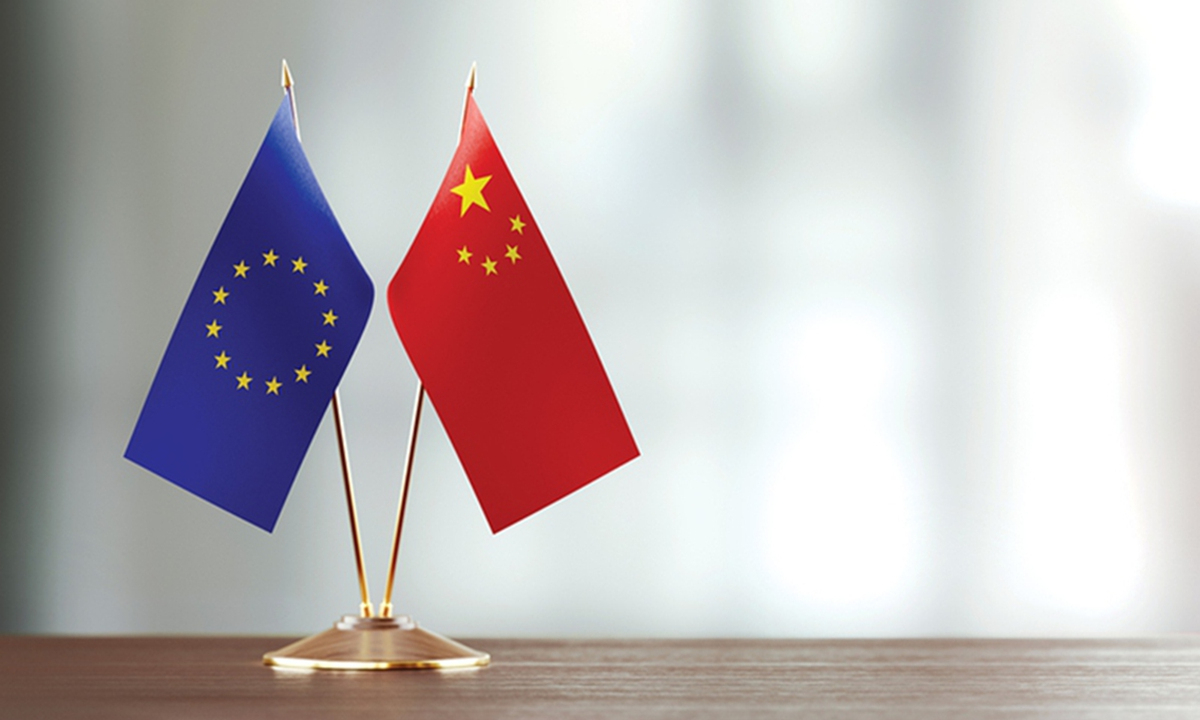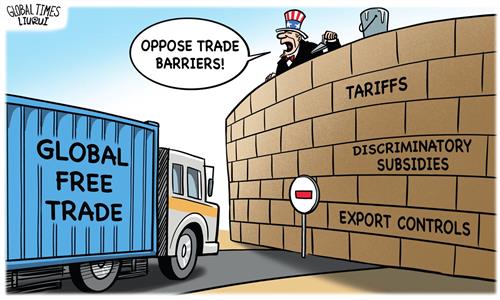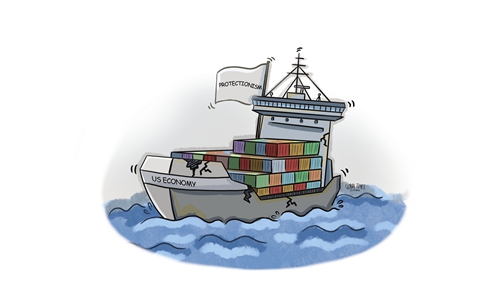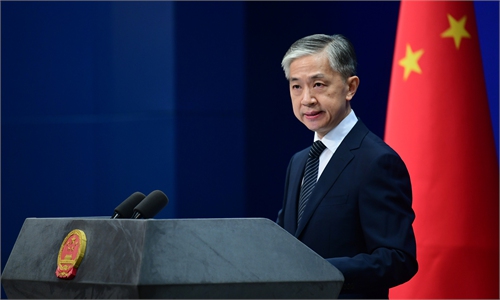
China EU Photo: VCG
Europe's anti-subsidy investigation into China's electric vehicles (EVs) on the grounds of "excessive industrial capacity" is a typical case of trade protectionism, China's Minister of Commerce (MOFCOM) Wang Wentao said on Monday, while calling on both sides to address each other's concerns through dialogue and communication.
The remarks were made during the 29th meeting of the China-Spain Joint Economic and Industrial Cooperation Committee held in Madrid, which Wang co-chaired with Spanish Minister for Economy, Commerce and Business Carlos Cuerpo.
The meeting was part of a series of meetings and activities held by the senior Chinese trade official during his trip to Europe, as the EU moves toward investigating Chinese EVs over the so-called overcapacity in the industry.
Speaking at Monday's meeting with Cuerpo, Wang said that the so-called "overcapacity" is not an excess of production capacity, but an excess of anxiety, and the so-called "market distortion" is not a distortion of the market, but a distortion of mindsets.
The minister said he hoped that Europe and China could meet each other halfway and resolve each other's concerns through dialogue and communication.
In a separate note, Wang expressed the hope that Spain will play a positive role in persuading the EU to remain rational and open in the field of the green and new-energy industry, the Xinhua News Agency reported.
In another meeting with the Spanish Minister for Industry and Tourism Jordi Hereu on Monday, Wang said that he hoped Spain will push the EU to support and encourage the new-energy industry to deepen cooperation and create a fair, non-discriminatory and predictable development environment based on the overall situation of safeguarding global joint efforts to combat climate change and the China-EU comprehensive strategic partnership.
Wang's visit to Europe coincides with a period of escalating economic and trade tensions between China and Europe, as the bloc is moving closer to deciding whether or not to impose tariffs against Chinese EVs, with the decision reportedly to be announced soon.
Chinese senior trade officials held proactive meetings with officials from Spain and other European counterparts to identify underlying issues and negotiate ongoing discussions in order to facilitate mutually beneficial solutions regarding the EV sector, Cui Hongjian, a professor at the Academy of Regional and Global Governance of Beijing Foreign Studies University, told the Global Times on Tuesday.
The main backdrop to this escalation of trade tensions posed by possible tariff hikes on China's EV sector is the EU's adoption of protectionist measures under the so-called pretext of economic security, specifically targeting China, Cui said.
"Regardless of Europe's actions being unreasonable, we cannot allow trade friction to become a significant long-term impediment to China-Europe relations, given the strong symbiotic nature of China-Europe economic and trade relations," Cui noted.
China and the EU are each other's second-largest trading partners, with trade flows averaging nearly $1.5 million per minute. Moreover, the stock of bilateral investment has surpassed $250 billion.
China has always believed that the essence of China-EU economic and trade relations is mutual benefit and win-win, Mao Ning, spokesperson of the Ministry of Foreign Affairs, said at a press conference on Tuesday, noting that protectionism has no future, and cooperation is the right way.
Chinese experts urged the Europe to fully recognize the benefits of the China-Europe relationship, rather than blindly following the US. "At the same time, we must also be prepared for the worst to safeguard the interests of our enterprises," Cui said.
The deepening of economic and trade cooperation between China and Europe is the future trend, Zhao Junjie, a research fellow at the Chinese Academy of Social Sciences' Institute of European Studies, told the Global Times on Tuesday, noting that if the EU resorts to trade protectionism against Chinese companies and products, it will result in mutual losses, and ultimately undermine joint efforts to address global challenges such as climate change.



